A new collection of government documents has drawn national attention after being delivered to Congress for a comprehensive review. These records, connected to the Clinton Foundation, have become the centerpiece of a broader conversation about nonprofit accountability, transparency, and the evolving expectations the public holds toward organizations linked to public officials.
The arrival of this material marks a significant moment in the ongoing effort to maintain trust in both charitable institutions and the government bodies that oversee them.
The documents were provided to the Senate Judiciary Committee after officials emphasized the importance of ensuring that all historical records related to the foundation were accounted for. Although the Clinton Foundation has always been a high-profile organization, the renewed interest is driven by the belief that oversight must remain consistent and detailed—especially when charitable activities intersect with public service.
The Clinton Foundation’s impact around the world is well known. For years, the foundation has supported global health programs, distributed life-saving medications, assisted communities after natural disasters, and promoted educational initiatives across continents.
Its reach extends into dozens of countries, partnering with international agencies, local governments, and private-sector contributors. These initiatives have built a reputation for humanitarian engagement and large-scale philanthropic coordination.
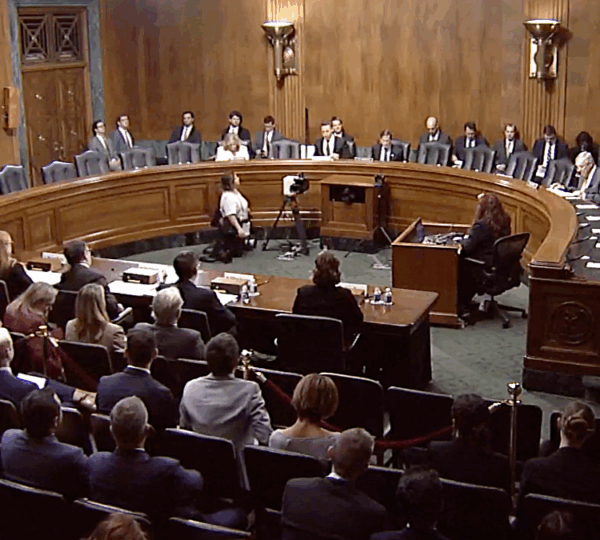
At the same time, its global footprint has occasionally attracted questions about donor relationships, particularly during the years when Hillary Clinton served as Secretary of State.
These questions have less to do with allegations and more to do with the need for clear boundaries, thorough documentation, and strong transparency frameworks.
In any scenario involving a charity linked to public figures, the public naturally wants reassurance that every donation is handled in a way that reflects the highest standards.
The newly delivered records were mentioned previously in whistleblower communications, suggesting that portions of the material might not have been extensively reviewed during a 2015 inquiry conducted by the U.S. attorney’s office in Little Rock, Arkansas.
That inquiry concluded without findings of wrongdoing, but the introduction of additional records reinforced the committee’s desire to confirm that every relevant detail is fully understood.
Oversight at this level often requires extraordinary patience and precision. Modern nonprofit organizations generate enormous amounts of documentation: financial statements, partnership agreements, donor logs, audit results, international correspondence, and operational reports.
When Congress receives new material, staff must cross-reference it with earlier files, analyze the context in which it was created, and determine whether follow-up testimony or questions are necessary. This level of detail ensures that every document fits into the broader timeline of events.
Officials involved in the transfer stressed that revisiting these documents is a standard part of responsible governance. Oversight committees routinely reassess earlier material when new records emerge.
The goal is not to imply impropriety but to ensure that legislative responsibilities are carried out in a thorough and impartial manner. This long-standing process helps maintain the accuracy of public archives and safeguards the principles of transparency that underlie democratic institutions.
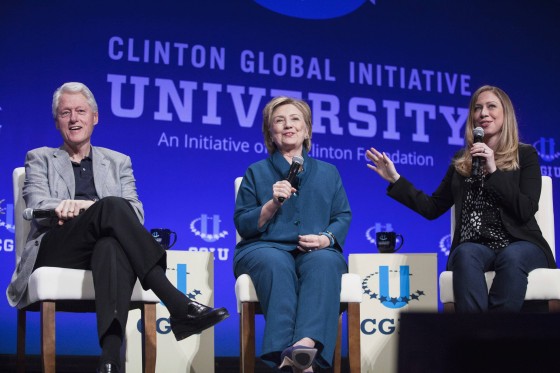
The Clinton Foundation has repeatedly emphasized that it welcomes oversight and has maintained detailed reporting practices since its inception. The foundation undergoes independent audits, files public tax forms, and publishes annual reports outlining its programs and finances.
Supporters argue that its high level of disclosure sets a strong example within the philanthropic community.
Even so, nonprofit law experts acknowledge that public expectations have evolved dramatically over the past decade. With increasing political polarization and the rise of digital information platforms, public institutions face scrutiny at levels never seen before.
Every donation, partnership, and financial movement becomes part of a broader conversation about ethics and public trust. These shifts have placed global nonprofits in a position where transparency is not simply encouraged—it is essential.
Parallel to the renewed focus on the foundation, public discussion has also turned toward previously declassified government memos related to U.S. election security. A widely circulated intelligence memo stated that foreign cyber activities did not alter American voting systems or affect ballot totals.
The memo highlighted that while probing attempts were detected in several states, none of those attempts compromised the infrastructure used to cast or count ballots.
This distinction between attempted interference and successful interference is critical. Cybersecurity specialists have long explained that attempts to access voter databases are not unusual, and many are blocked automatically by security systems.
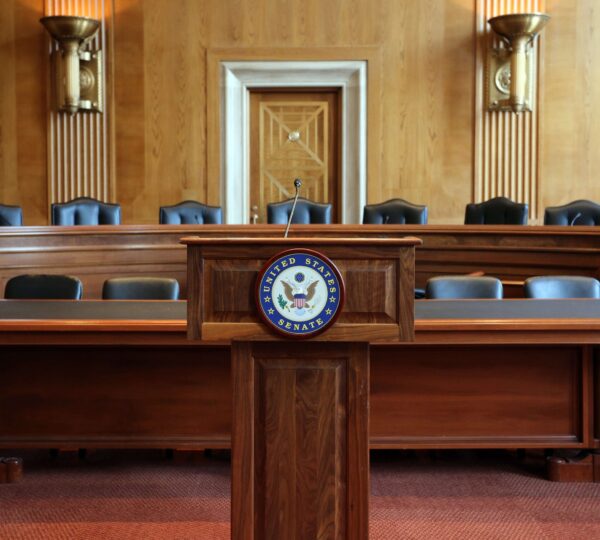
The memo reinforced the idea that although digital threats persist, strong safeguards continue to protect election integrity. These clarifications are deeply important at a time when misinformation spreads rapidly and public confidence must be reinforced through clear, factual communication.
The overlap between discussions about the Clinton Foundation and conversations about election security reflects a wider societal shift toward wanting greater transparency across all institutions.
Whether discussing elections, charitable organizations, or government agencies, the public now expects clear explanations, consistent documentation, and accessible information that allows them to evaluate issues independently.
Back in Congress, staff members are sorting through the newly received documents, organizing them by category, date, and relevance. The review process is expected to take time due to the volume and complexity of the material.
Depending on what the committee learns, lawmakers may schedule hearings, request additional records, or invite experts in nonprofit law and financial oversight to provide technical insight.
This methodical process reflects the structure and rhythm of legislative review, where patience and consistency are key. Rushing conclusions would risk undermining the integrity of the evaluation.
Instead, the emphasis remains on understanding the documents in context and ensuring that every relevant question receives a clear, evidence-based answer.
Public reaction to the news has been divided, though in predictable ways. Some view the review as a necessary exercise in transparency, while others consider it a routine step that has been amplified by the Clinton Foundation’s visibility.
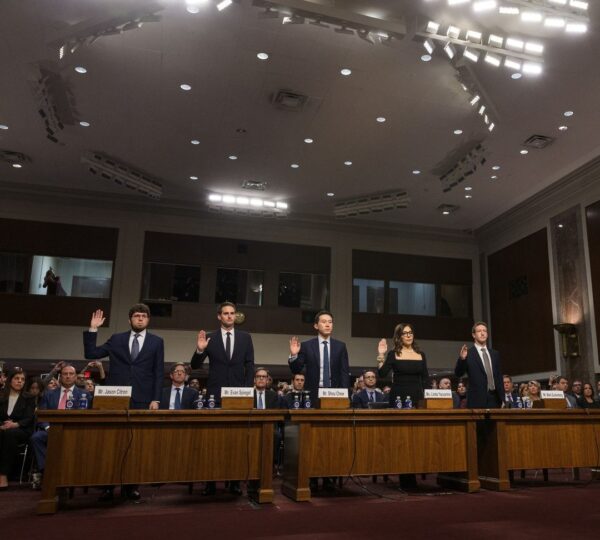
Political commentators note that because the organization is connected to well-known public figures, any new development—no matter how procedural—naturally attracts heightened attention.
Nonprofit specialists also argue that the situation highlights broader challenges faced by all large philanthropic organizations. As charities grow and form partnerships across borders, their structures become more complex.
This complexity demands strong governance, regular audits, and clear rules for documenting donations. These principles apply to charities of all sizes, but especially to those operating in multiple countries.
Throughout this review, experts remind the public that receiving new documents does not automatically indicate a problem. Instead, it often means that archives are being updated, gaps are being filled, and oversight is being strengthened.
This is a healthy and productive process for any democratic system, as it reinforces accountability and improves institutional memory.
The Clinton Foundation continues to support global programs even today. Its health initiatives remain active, its economic empowerment programs expand community resources, and its disaster relief efforts respond to crises around the world.
These ongoing missions are central to the foundation’s identity and are separate from the administrative review currently underway.
In many ways, the document review illustrates how nonprofit transparency has become a pillar of modern civic life. Citizens increasingly want to understand how large organizations function, how they handle donations, and how they ensure responsible stewardship of resources.
This desire for clarity is not inherently political—it reflects a broader cultural shift toward openness and accountability.
As Congress completes its evaluation, the results may influence future policy discussions about nonprofit governance. Lawmakers could consider proposals to modernize reporting requirements, improve cross-agency communication, or create more unified frameworks for reviewing international donations.
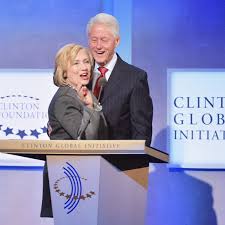
Each of these discussions contributes to a more transparent and accountable nonprofit landscape.
The ripple effects of such reviews often extend beyond the organization in question. When lawmakers revisit reporting standards or audit practices, the entire charitable sector pays attention. Best practices evolve, transparency increases, and public confidence grows.
This is the broader value of oversight: it strengthens institutions as a whole, not only the ones under direct review.
Ultimately, the arrival of the new documents serves as a reminder that maintaining trust in public and philanthropic institutions is an ongoing process. Transparency is not a single event but a continuous practice.
Whether examining nonprofit records, analyzing election security, or updating government procedures, the goal remains the same: ensuring that the public has access to accurate information and that institutions operate with integrity.
The coming months will reveal how the congressional review unfolds, but regardless of the outcome, the dialogue it has sparked will continue to influence discussions about governance, accountability, and the evolving role of nonprofit organizations in public life.
For now, the focus remains on careful examination, responsible communication, and a commitment to clarity that strengthens the foundation of trust on which democratic societies depend.
A new collection of government documents has drawn national attention after being delivered to Congress for a comprehensive review. These records, connected to the Clinton Foundation, have become the centerpiece of a broader conversation about nonprofit accountability, transparency, and the evolving expectations the public holds toward organizations linked to public officials.
The arrival of this material marks a significant moment in the ongoing effort to maintain trust in both charitable institutions and the government bodies that oversee them.
The documents were provided to the Senate Judiciary Committee after officials emphasized the importance of ensuring that all historical records related to the foundation were accounted for. Although the Clinton Foundation has always been a high-profile organization, the renewed interest is driven by the belief that oversight must remain consistent and detailed—especially when charitable activities intersect with public service.
The Clinton Foundation’s impact around the world is well known. For years, the foundation has supported global health programs, distributed life-saving medications, assisted communities after natural disasters, and promoted educational initiatives across continents.
Its reach extends into dozens of countries, partnering with international agencies, local governments, and private-sector contributors. These initiatives have built a reputation for humanitarian engagement and large-scale philanthropic coordination.

At the same time, its global footprint has occasionally attracted questions about donor relationships, particularly during the years when Hillary Clinton served as Secretary of State.
These questions have less to do with allegations and more to do with the need for clear boundaries, thorough documentation, and strong transparency frameworks.
In any scenario involving a charity linked to public figures, the public naturally wants reassurance that every donation is handled in a way that reflects the highest standards.
The newly delivered records were mentioned previously in whistleblower communications, suggesting that portions of the material might not have been extensively reviewed during a 2015 inquiry conducted by the U.S. attorney’s office in Little Rock, Arkansas.
That inquiry concluded without findings of wrongdoing, but the introduction of additional records reinforced the committee’s desire to confirm that every relevant detail is fully understood.
Oversight at this level often requires extraordinary patience and precision. Modern nonprofit organizations generate enormous amounts of documentation: financial statements, partnership agreements, donor logs, audit results, international correspondence, and operational reports.
When Congress receives new material, staff must cross-reference it with earlier files, analyze the context in which it was created, and determine whether follow-up testimony or questions are necessary. This level of detail ensures that every document fits into the broader timeline of events.
Officials involved in the transfer stressed that revisiting these documents is a standard part of responsible governance. Oversight committees routinely reassess earlier material when new records emerge.
The goal is not to imply impropriety but to ensure that legislative responsibilities are carried out in a thorough and impartial manner. This long-standing process helps maintain the accuracy of public archives and safeguards the principles of transparency that underlie democratic institutions.

The Clinton Foundation has repeatedly emphasized that it welcomes oversight and has maintained detailed reporting practices since its inception. The foundation undergoes independent audits, files public tax forms, and publishes annual reports outlining its programs and finances.
Supporters argue that its high level of disclosure sets a strong example within the philanthropic community.
Even so, nonprofit law experts acknowledge that public expectations have evolved dramatically over the past decade. With increasing political polarization and the rise of digital information platforms, public institutions face scrutiny at levels never seen before.
Every donation, partnership, and financial movement becomes part of a broader conversation about ethics and public trust. These shifts have placed global nonprofits in a position where transparency is not simply encouraged—it is essential.
Parallel to the renewed focus on the foundation, public discussion has also turned toward previously declassified government memos related to U.S. election security. A widely circulated intelligence memo stated that foreign cyber activities did not alter American voting systems or affect ballot totals.
The memo highlighted that while probing attempts were detected in several states, none of those attempts compromised the infrastructure used to cast or count ballots.
This distinction between attempted interference and successful interference is critical. Cybersecurity specialists have long explained that attempts to access voter databases are not unusual, and many are blocked automatically by security systems.

The memo reinforced the idea that although digital threats persist, strong safeguards continue to protect election integrity. These clarifications are deeply important at a time when misinformation spreads rapidly and public confidence must be reinforced through clear, factual communication.
The overlap between discussions about the Clinton Foundation and conversations about election security reflects a wider societal shift toward wanting greater transparency across all institutions.
Whether discussing elections, charitable organizations, or government agencies, the public now expects clear explanations, consistent documentation, and accessible information that allows them to evaluate issues independently.
Back in Congress, staff members are sorting through the newly received documents, organizing them by category, date, and relevance. The review process is expected to take time due to the volume and complexity of the material.
Depending on what the committee learns, lawmakers may schedule hearings, request additional records, or invite experts in nonprofit law and financial oversight to provide technical insight.
This methodical process reflects the structure and rhythm of legislative review, where patience and consistency are key. Rushing conclusions would risk undermining the integrity of the evaluation.
Instead, the emphasis remains on understanding the documents in context and ensuring that every relevant question receives a clear, evidence-based answer.
Public reaction to the news has been divided, though in predictable ways. Some view the review as a necessary exercise in transparency, while others consider it a routine step that has been amplified by the Clinton Foundation’s visibility.

Political commentators note that because the organization is connected to well-known public figures, any new development—no matter how procedural—naturally attracts heightened attention.
Nonprofit specialists also argue that the situation highlights broader challenges faced by all large philanthropic organizations. As charities grow and form partnerships across borders, their structures become more complex.
This complexity demands strong governance, regular audits, and clear rules for documenting donations. These principles apply to charities of all sizes, but especially to those operating in multiple countries.
Throughout this review, experts remind the public that receiving new documents does not automatically indicate a problem. Instead, it often means that archives are being updated, gaps are being filled, and oversight is being strengthened.
This is a healthy and productive process for any democratic system, as it reinforces accountability and improves institutional memory.
The Clinton Foundation continues to support global programs even today. Its health initiatives remain active, its economic empowerment programs expand community resources, and its disaster relief efforts respond to crises around the world.
These ongoing missions are central to the foundation’s identity and are separate from the administrative review currently underway.
In many ways, the document review illustrates how nonprofit transparency has become a pillar of modern civic life. Citizens increasingly want to understand how large organizations function, how they handle donations, and how they ensure responsible stewardship of resources.
This desire for clarity is not inherently political—it reflects a broader cultural shift toward openness and accountability.
As Congress completes its evaluation, the results may influence future policy discussions about nonprofit governance. Lawmakers could consider proposals to modernize reporting requirements, improve cross-agency communication, or create more unified frameworks for reviewing international donations.

Each of these discussions contributes to a more transparent and accountable nonprofit landscape.
The ripple effects of such reviews often extend beyond the organization in question. When lawmakers revisit reporting standards or audit practices, the entire charitable sector pays attention. Best practices evolve, transparency increases, and public confidence grows.
This is the broader value of oversight: it strengthens institutions as a whole, not only the ones under direct review.
Ultimately, the arrival of the new documents serves as a reminder that maintaining trust in public and philanthropic institutions is an ongoing process. Transparency is not a single event but a continuous practice.
Whether examining nonprofit records, analyzing election security, or updating government procedures, the goal remains the same: ensuring that the public has access to accurate information and that institutions operate with integrity.
The coming months will reveal how the congressional review unfolds, but regardless of the outcome, the dialogue it has sparked will continue to influence discussions about governance, accountability, and the evolving role of nonprofit organizations in public life.
For now, the focus remains on careful examination, responsible communication, and a commitment to clarity that strengthens the foundation of trust on which democratic societies depend.
